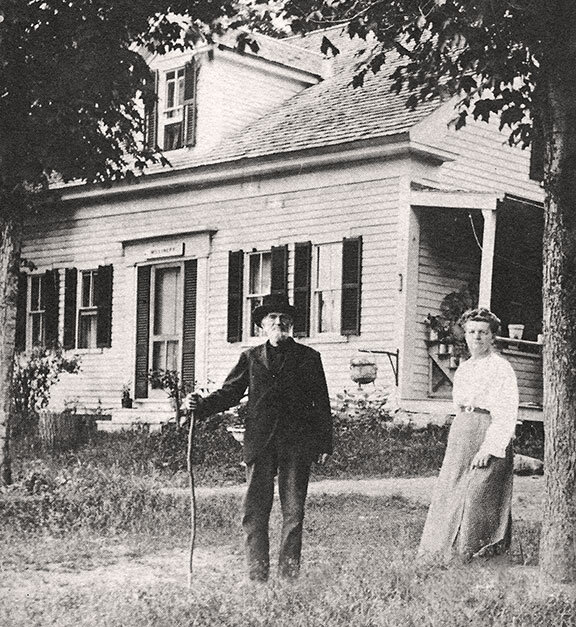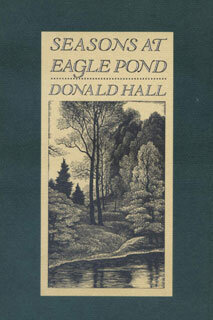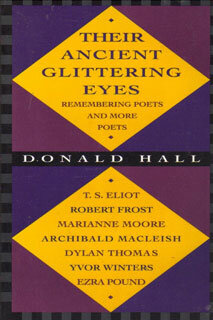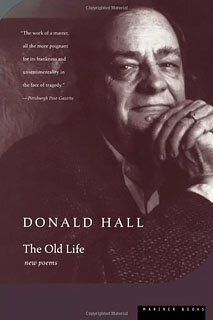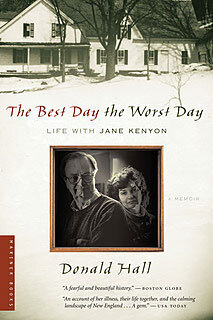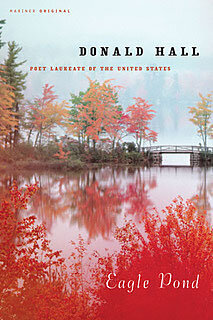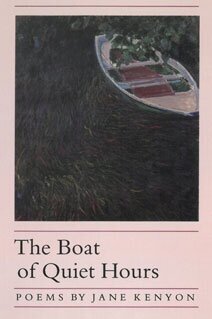View of Mount Kearsarge, as seen from the farm, c. 1930.
Eagle Pond, early summer. Photograph by Sheila Pallay.
Donald Hall and Jane Kenyon at Eagle Pond Farm
The traditional New Hampshire sidehill farm at Eagle Pond sits where the towns of Wilmot and Andover meet, just short of the Danbury townline. Thought to date from the early 1800s (research continues), it was in Don’s family from 1868 until it was sold in 2019, following his death the year before. The hundred and sixty acres are centered by a cape typical of New England, an adjacent barn, and a separate (originally Greek Revival style) cottage a short distance down the road. The steep, wooded flank of Ragged Mountain, which was once pasture for cows, presses into the back of the farmhouse and barn. Beyond the barn and across the road, hayed fields descend to Eagle Pond. Five miles to the south is Kearsarge, the blue mountain so present in the work of Don and Jane.
Don’s great-grandparents, Benjamin and Lucy Keneston, at Eagle Pond Farm, c. 1890. This photograph was used on the cover of Don’s Kicking the Leaves but reversed to allow the side view to wrap around to the back cover.
Donald Hall and Jane Kenyon restage the c. 1890 photograph in 1979. Photograph by Stephen Blos.
Growing up in Connecticut, Don came here to spend his summers with his grandparents, Wesley and Kate Wells, who were still living a farm life--summers remembered in String Too Short to Be Saved. Then, in 1975, three years after he and Jane married in Ann Arbor (where Don was teaching at the University of Michigan and Jane had been a student), they decided to try a year at the farm. And they soon knew they wouldn’t be returning to Michigan.
Though Don determined when he was twelve that he wanted to be a poet, and set to it, equal to the poetry that came of that is his prose in essays, memoir, and profiles of writers and artists (along with other work including short stories, a play, anthologies, and textbooks). He may be best known, however, for a single poem reconfigured as a children’s book: Ox-Cart Man, illustrated by Barbara Cooney. Awarded the Caldecott Medal in 1980, it tells the story of a long-ago New England farm very like the one at Eagle Pond. Among young (but not only young) readers around the world, it became, immediately, a classic and continues to be.
The farm at Eagle Pond had long held the story of Don’s family. But Jane found her own here, too. Though she had begun writing poetry in college, she said it was coming to Eagle Pond that made her a poet. It gave her a subject, she said, and a more reflective way of looking, as it also gave her space to write.
Discarding almost nothing from previous generations, Don and Jane filled the Eagle Pond farmhouse still further with bookshelves, books, and art, and writing became the habit of their days. In time, both were named New Hampshire poet laureates, and Don also served as a U.S. poet laureate.
For a video portrait of Don and Jane in 1993,
see Bill Moyers, A Life Together.
A late video of Don in 2018
is Paul Szynol’s Quiet Hours.
In 1995, Jane died at Eagle Pond Farm when leukemia took her at forty-seven. Don continued to live and write here, until he also died at the farm in 2018, months short of ninety.
Don’s blue chair remains in the sitting room. Here he made revisions to work, dictated letters, received callers, and watched the Red Sox. Above the now-empty shelves, Warhol’s lithograph of Elizabeth Taylor, bought back at auction in 2019, has returned to its hook on the wall, joining a photograph of Don’s grandmother, Kate Wells, and one of Jane and Don by Carolyn Chute, c. 1985.
Photograph by Sheila Pallay.
Photograph by Stephen Blos, 1979.
President Barack Obama awards Donald Hall the 2010 National Medal of Arts at a White House ceremony in 2011. AP Photo, Charles Dharapak.
Map by Ryan O’Rourke. Click to enlarge.
Some of what Don wrote at Eagle Pond Farm:
Click each book to enlarge.
Jane Kenyon in her upstairs study, 1990. Photograph by Ken Williams, courtesy of Special Collections and Archives, University of New Hampshire.



